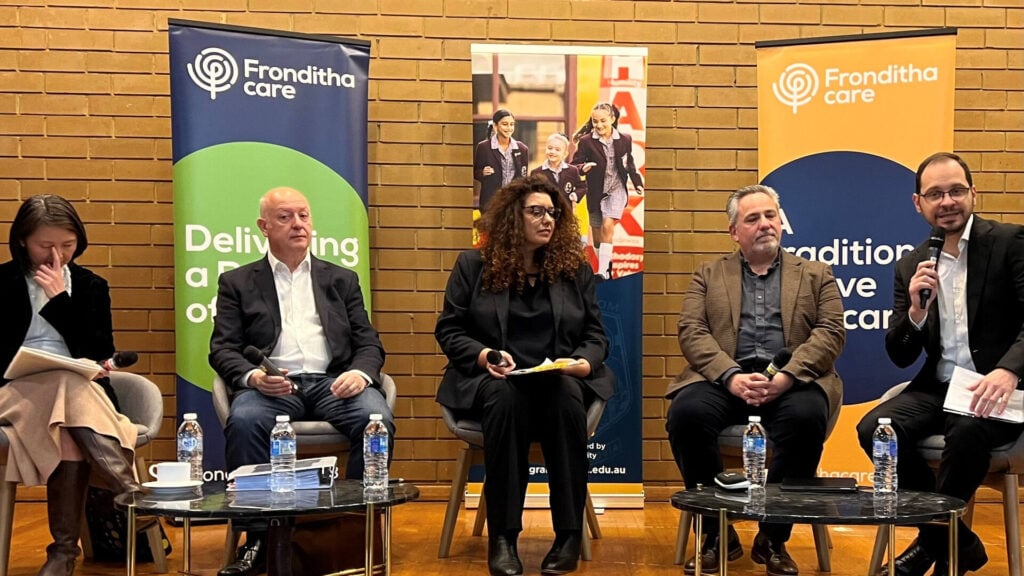A large crowd filled the events hall at Oakleigh Grammar for a public forum organised by Fronditha under the theme “An Open Conversation on Dementia – Its Personal, Social and Legal Dimensions and What You Need to Know.”
The audience was made up largely of second-generation Greek Australians already caring for parents with dementia, elderly spouses supporting their partners, and others eager to better understand the condition that is now the leading cause of death in Australia for both men and women.
According to the Australian Institute of Health and Welfare, more Australians now die from dementia than any other disease. Experts warn that without stronger government intervention, the number of people living with the condition could exceed one million in the coming decades.
The discussion was moderated by Odysseas Krypotos, Fronditha’s Head of Communications, Strategy and Corporate Relations. The panel featured psychiatrist Dr Athanasios Kokkinas (Royal Melbourne Hospital, specialising in psychogeriatrics), Georgia Tzebetzi (Director of Quality & Clinical Care at Fronditha), lawyer Christos Dolkas (RND Lawyers Pty Ltd), and Mandy Ha (Education Programs Coordinator, Dementia Australia).
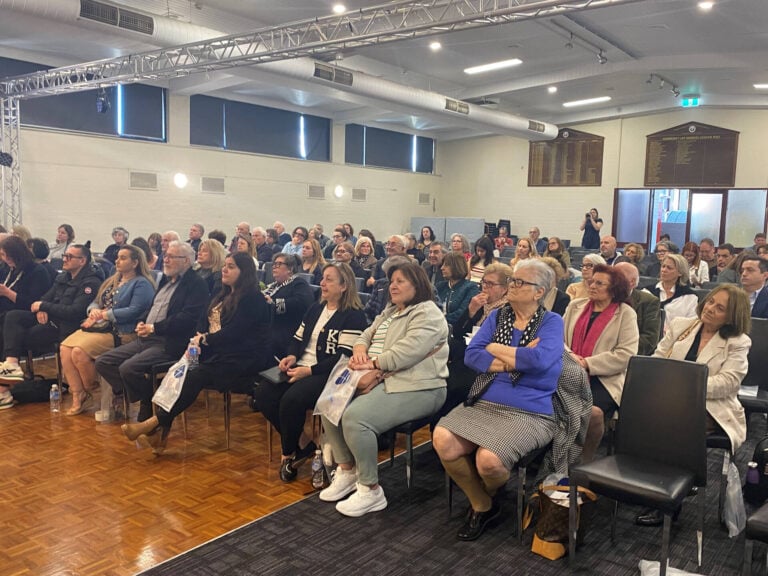
Understanding dementia
“Dementia is not a single disease, but a general term describing various conditions that impair brain function,” explained Dr Kokkinias.
Beyond the most widely known type, Alzheimer’s disease, which begins with memory problems, there are several other common forms, including vascular dementia, dementia associated with Parkinson’s disease, and frontotemporal dementia.
“In most cases dementia is not reversible,” he said. “However, treatments, both pharmaceutical and non-pharmaceutical, can reduce distress and slow the progression of the disease.”
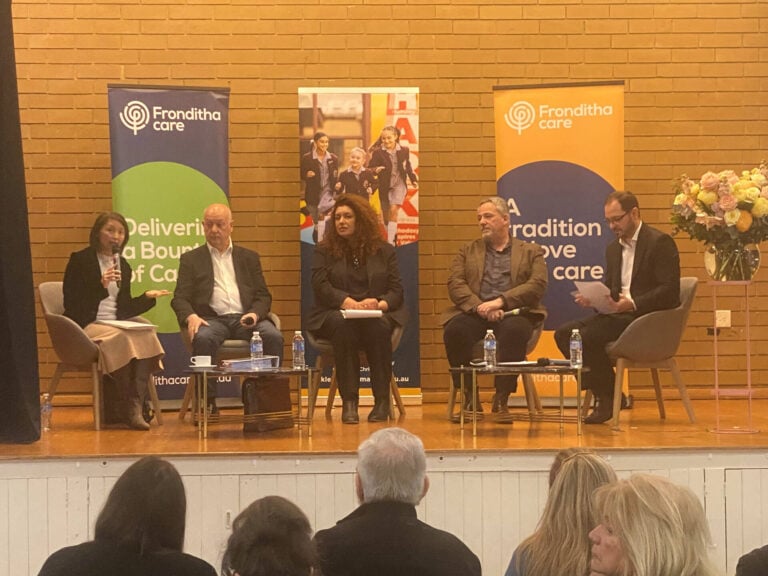
Daily life with dementia
Drawing from years of experience in aged care, Georgia Tzebetzi outlined the symptoms families often face.
“All these damages to brain function can cause confusion—people may forget how to dress themselves or perform basic daily tasks,” she said.
Disorientation in time and place, difficulty recognising faces, impaired judgment and perception, and fluctuating moods are all common. “Behaviours of concern often appear,” Tzebetzi added, “sometimes due to distressing circumstances, boredom, loneliness, or psychological factors.”
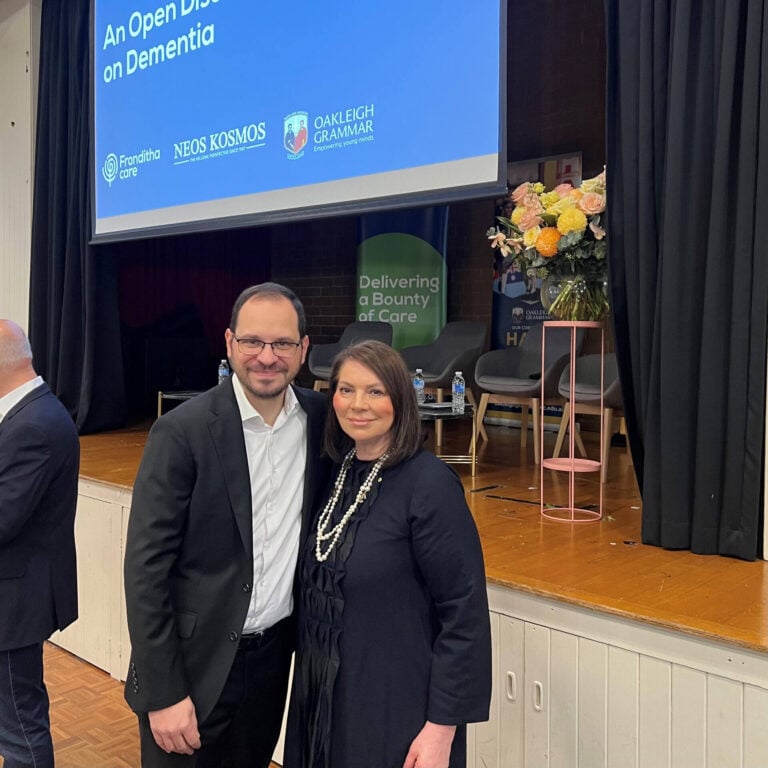
Dementia, delirium or depression?
Differentiating between dementia, delirium, and depression can be difficult, Dr Kokkinias noted.
“Dementia is often the underlying condition in older people, making them extremely vulnerable and prone to delirium. Delirium always has a medical cause, for example an infection or drug interaction, and presents as sudden, severe confusion. But it can be treated if the underlying cause is addressed.”
Depression, he added, can mimic dementia: “In older adults, depression sometimes manifests as what we call pseudodementia. The person seems to have dementia, memory issues, confusion, apathy, lack of interest, but in fact the symptoms come from depression. When treated, the apparent dementia disappears.”
This, he stressed, is why comprehensive assessments at both the onset and progression of dementia are crucial.
Mandy Ha echoed the point: “Changes in behaviour are not always due to dementia itself. Often they stem from the emotional upheaval of leaving home and moving into aged care, where routines change and caregivers are strangers who don’t yet know their history or preferences. Families and carers must first consider the person’s broader context before attributing changes solely to dementia.”
Early diagnosis and planning ahead
“Early diagnosis is extremely important,” Ha emphasised.
“With the right support from the beginning, people can recognise and accept the condition, express their wishes for the future, and prepare emotionally and practically. It also gives families time to organise and plan before reaching the advanced stages, when communication becomes more difficult.”
Lawyer Christos Dolkas underlined the need for legal safeguards: “When a loved one starts losing legal capacity, almost every institution, be it Fronditha, another organisation or a bank, will ask: Who is authorised to speak on their behalf?”
He pointed to two key documents: the Enduring Power of Attorney for legal and financial matters, and the Medical Treatment Decision Maker form, covering healthcare and treatment decisions.
“It is crucial to seek legal advice while the person can still understand their choices,” Dolkas said.
“Waiting until later is too late.” He also recommended the Office of the Public Advocate for families unable to afford legal representation.
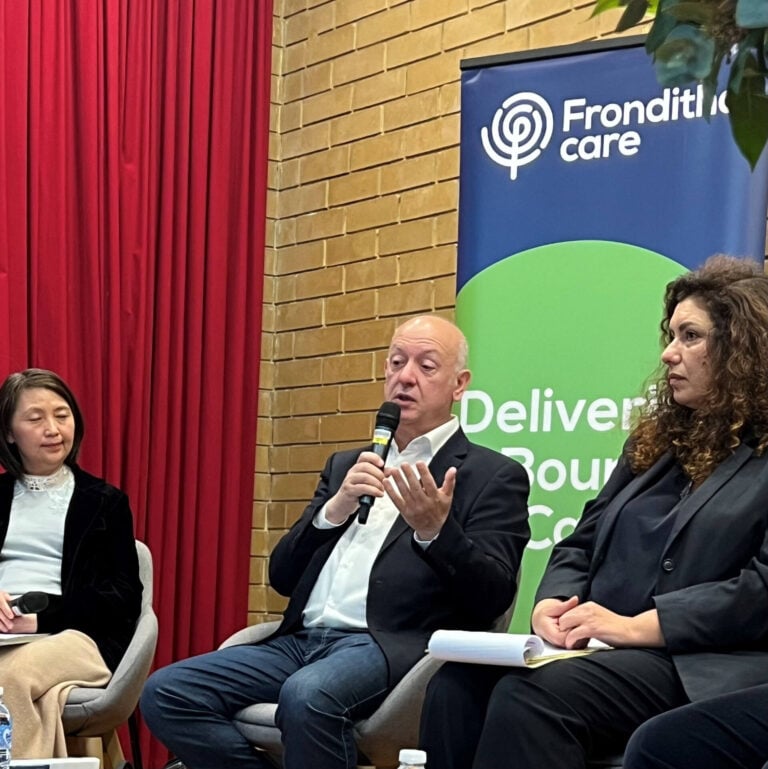
Knowledge is power
“The first reactions to a dementia diagnosis are often very difficult because people don’t really understand what it means,” said Dr Kokkinias.
“Knowledge is power, when we know the condition, we can accept it more easily and avoid catastrophising.”
Georgia Tzebetzi urged families to “learn as much as possible about dementia and the specific type your loved one has, so you can anticipate symptoms before they appear. And truly know the person, ask the hard questions about their wishes and hopes for the future.”
She stressed that life does not end with dementia. “It is a different way of living. Patience, calmness, and support are essential. Be present but discreet. Preserve autonomy and dignity in daily life, even something as simple as choosing clothes or making coffee matters.”
Breaking the stigma
Stigma, the panel agreed, continues to isolate people with dementia.
“Many withdraw, especially in the early stages when they are aware something is wrong. Families also feel shame and retreat socially,” Tzebetzi said. “But social interaction is like medicine, it is therapy. Research shows it is one of the most powerful interventions we have.”
Dr Kokkinias added that dementia is now so widespread in the Greek community that stigma is slowly easing. “Isolation is the exact opposite of what is needed,” he said.
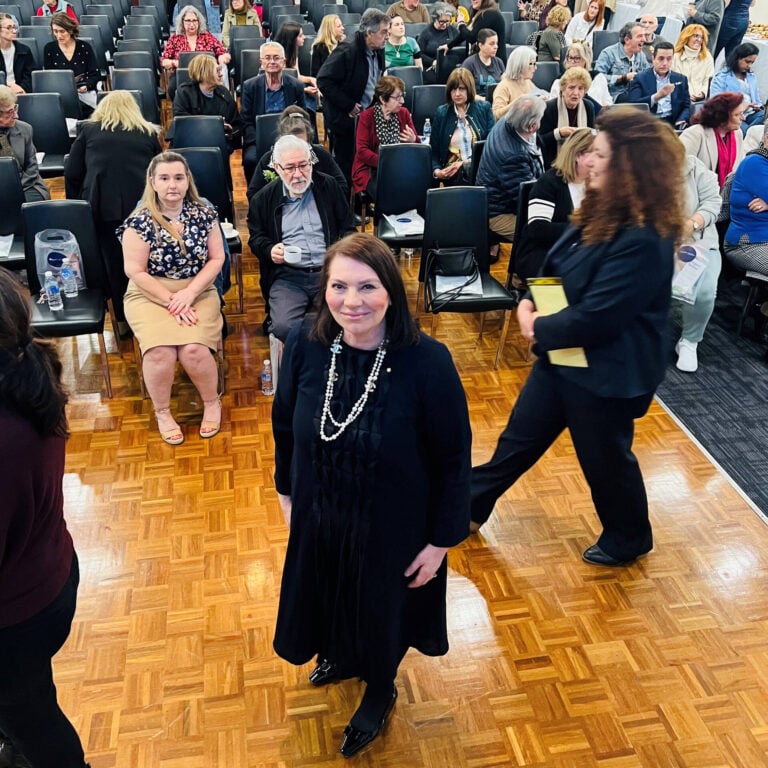
Tools and hope for the future
Mandy Ha highlighted resources such as Dementia Australia’s website and the Ask Annie app, which is now available in Greek thanks to a collaboration with Fronditha. The app offers culturally adapted lessons and video scenarios, enabling Greek-speaking carers to learn in their own language.
Looking ahead, Dr Kokkinias spoke of new therapies.
Donanemab (Kisunla), a monoclonal antibody recently approved for early Alzheimer’s, is not a cure but clinical trials show it can significantly slow progression. It’s a hopeful step, paving the way for future advances.”
Meanwhile, prevention remains vital. Lifestyle factors like regular exercise, healthy diet, avoiding smoking and excessive alcohol, and staying socially connected, reduce risk not only for dementia but also for heart disease and cancer.
“Life doesn’t end with dementia,” Tzebetzi concluded. “It is about preserving dignity, autonomy, and connection for as long as possible.”
